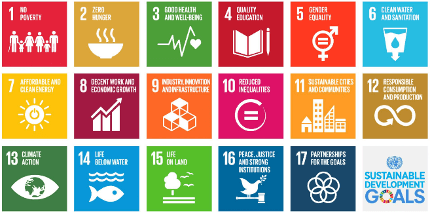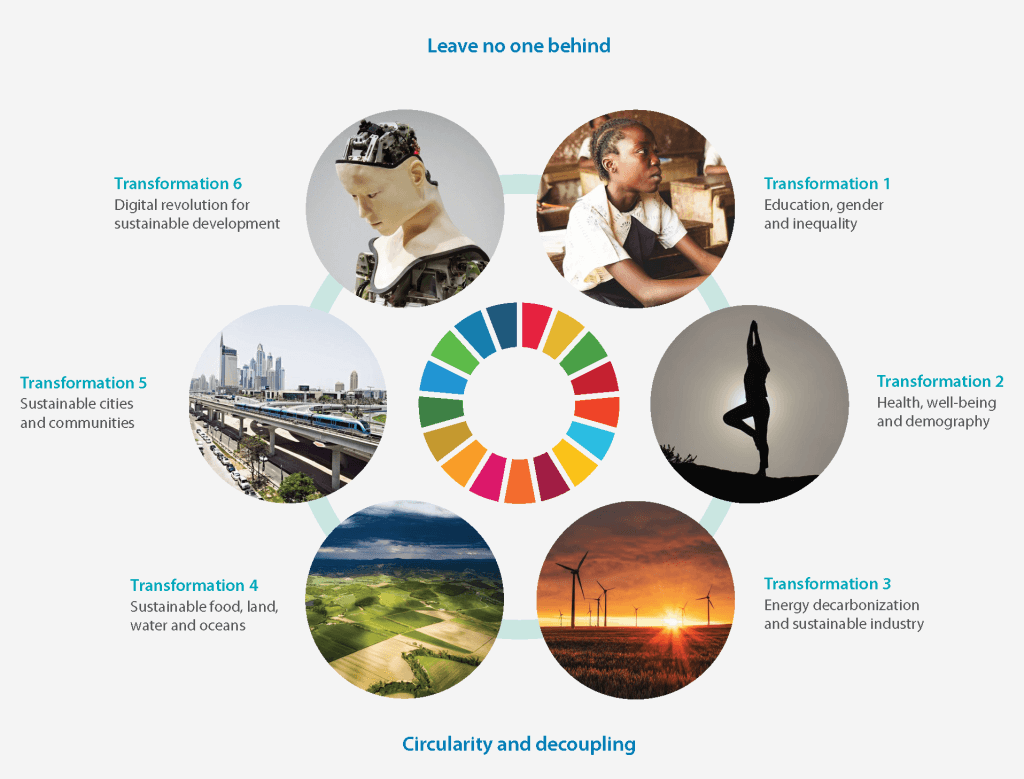What is COVID-19 teaching us about sustainable development?
posté 3
This year’s Sustainable Development Report analyses the impact of the COVID-19 pandemic on the Sustainable Development Goals (SDGs), rather than just reporting progress on the implementation of the 2030 Agenda and the SDGs.
The world is facing its worst public health and economic crises in a century. The pandemic is having a severe negative effect on most of the goals, mainly threatening the progress made towards decreasing poverty, inequality, hunger and increasing health, well-being and economic growth in recent years. COVID-19’s impact is not the same among countries or individuals, but one thing is clear: no one is exempt.

The scenario is still unstable, and we cannot predict the future. However, one of the key messages of the report is “no one will be safe until all countries have robust health systems”. The pandemic is showing how unprepared we are to address a health crisis of this magnitude. The situation is more critical in developing countries where resources are scarce, and health care systems are overloaded by diseases that are easily preventable and treated in higher-income countries, such as malaria.
The report shows that besides strengthening health care systems, it is also necessary to invest in better measuring and reporting to prevent disease outbreaks. Asian countries registered greater progress in the SDGs ranking since its adoption in 2015. It is interesting to note that most of the countries in the region also managed the coronavirus outbreak better than in some other parts of the world.
COVID-19 is a challenge of global proportions. We will not overcome it without collaborative efforts. Solidarity and partnerships are critical to prevent, mitigate and recover from the pandemic’s economic and social impact. The report already identifies key measures to guide cooperation and avert future disruptive events. Investments in new drugs and vaccines are vital, the authors highlighted.
Our team at Target Malaria is highly conscious that existing tools and methods to manage infectious diseases will not enable us to eradicate them. In the case of malaria, insecticides and bed nets significantly contributed to a reduction in malaria cases worldwide. However, they are not able to eradicate the disease. Last year, malaria killed over 400,000 people. Increasing drug and insecticide resistance is not making the battle any easier. Gene drive for mosquito control is a tool that Target Malaria has decided to explore. If we win the fight against malaria, we reduce the burden on health care systems and free up resources to combat other diseases.
While we adapt to the “new normal”, countries are struggling to put their economies back on track and avoid new outbreaks. We are having the chance of a lifetime to design the society and future we want, as it notably says the report. Why not have the SDGs guiding policymaking and recovery strategies?

Interested to know more about the SDGs? Download the Sustainable Development 2020 Report and explore its interactive dashboards.

